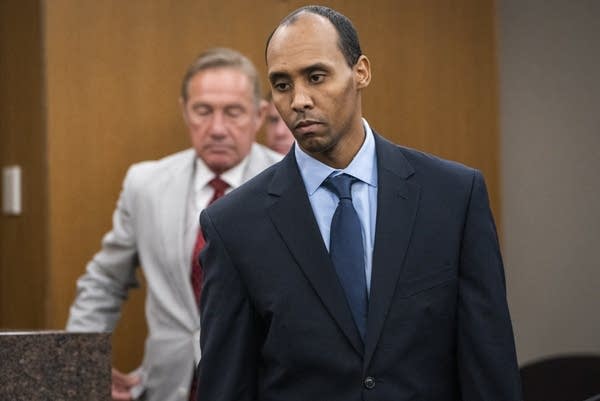Justices to decide if charge fits Minneapolis police killing

Mohamed Noor walks to the podium to be sentenced in the fatal shooting of Justine Ruszczyk in Hennepin County District Court in Minneapolis June 7, 2019.
Leila Navidi | Star Tribune 2019
Go Deeper.
Create an account or log in to save stories.
Like this?
Thanks for liking this story! We have added it to a list of your favorite stories.


